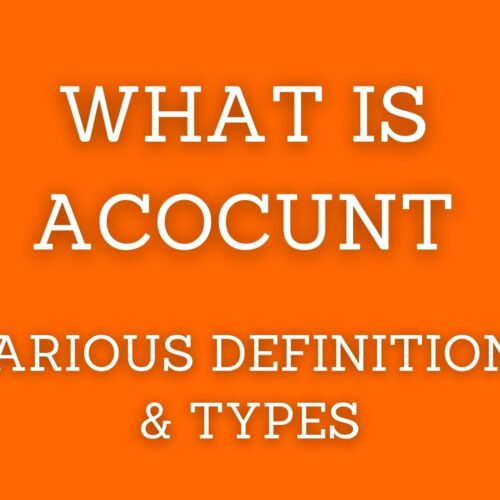Accounting concepts are the basic rules, assumptions, and conditions that define the parameters and constraints under which accounting works. In other words, accounting concepts are generally accepted accounting principles that provide a fundamental basis for the consistent preparation of financial statements in a universal format.
Table of Contents
- Objectives of Accounting Concepts
- Following are the 12 basic accounting concepts:
- Importance of Accounting Concept
- Conclusion
- Further Reading: Relevant Articles
- FAQs: Frequently Asked Questions
Objectives of Accounting Concepts
- The primary objective is to achieve consistency and uniformity in the preparation and maintenance of financial statements.
- Serves as a guiding principle to help accountants create and maintain business records.
- It aims to create a common understanding of the rules and assumptions that companies of all types must follow, thereby facilitating comprehensive and comparable financial information.
Following are the 12 basic accounting concepts:
Accruals Concept
Income generated during the accounting period is considered, and expenses associated with the accounting period are also considered. According to the accrual accounting concept, revenue starts at the point at which goods are sold or services are provided, regardless of whether cash is available. The same concept applies to expenses. All expenses paid or paid in cash will be considered and any advance payment of expenses will be deducted.
Most professionals use cash accounting. This means that cash received in a particular accounting period and expenses paid in cash in the same accounting period form the basis of accounting. For them, their company’s income depends on collecting income in cash. A similar practice applies to expenses. It’s convenient for them and on the same basis, they pay taxes.
Conservatism Concept
Revenue is recognized only when there is reasonable assurance that it will be realized, and expenses are recognized early when it is reasonably possible that they will be incurred. This concept tends to lead to more conservative financial statements.
Consistency Concept
Once a company decides to use a particular accounting policy, it should continue to use it. In this way, financial statements prepared for multiple periods can be reliably compared.
Economic Entity Concept
A company’s business must be separated from that of its owner. As a result, a company’s annual financial statements do not mix personal and business transactions.
According to this concept, the company and the owner of the company are two different entities.
For example, Mr. A established a new company under the name and style of M/s ABC Trading Company and in cash, he introduced a capital of Rs 2,000,000. This means that the cash balance of M/s ABC Trading Company will be increased by Rs 2,000,000/-. At the same time, M/s ABC Trading Company’s debt in the form of equity will increase. This means that M/s ABC Trading Company is obliged to pay Mr. A. Rs 2,000,000.
Going Concern Concept
Accounting is performed on the assumption that the business domain will continue. With this view that the entity is a going concern in mind, we record all financial transactions of the company. Otherwise, bankers will not lend, suppliers will not provide goods and services, employees will not work properly, and the way transactions are recorded will be completely changed.
For example, a company invests in property, plant, and equipment and only posts depreciation of the asset to the income statement. It is not the cost of the asset minus the net realizable value of the asset. The reason is simple, we expect to use these assets and generate future profits from their use. Similarly, we treat deferred revenue and expenses and prepaid expenses. The going concern concept does not work if:
When a unit is declared sick: When the company is liquidated, or when a liquidator is appointed.
A business unit has experienced a severe financial crisis and is about to be dissolved.
Cost Concept
It’s a very important concept based on the idea of the Going Concern Concept. We record the value of our assets on a cost basis, rather than their net realizable value or market value, based on the assumption that our business will continue as a going concern. Depreciating an asset definitely reduces its value of the asset, but ignores the market value of the asset.
The concept of cost stops any kind of operation considering the net realizable value or market value. On the other hand, this concept ignores the impact of inflation on the market. Nevertheless, the concept of cost is widespread and generally accepted.
Matching Concept
Revenue-related expenses are recognized in the same period in which the revenue is recognized. In this way, expense recognition is not deferred to a later reporting period, so anyone viewing a company’s financial statements can be sure that all aspects of the transaction are being recorded at the same time.
Materiality Concept
Transactions that may change the decisions of readers of a company’s financial statements should be recorded. This usually results in relatively small transactions being recorded so that the financial statements comprehensively represent the company’s financial results, financial position, and cash flows.
Objective Evidence Concept
According to the concept of objective evidence, each financial entry must be backed by objective evidence. Purchases should be evidenced by purchase invoices, sales by sales invoices, cash payment of expenses by cash statements, and payment to creditors by receipts and bank statements. Similarly, inventory must be verified by physical inspection and prices must be verified against purchase invoices. Without them, the accounting results are unreliable, there is a high probability of manipulation of accounting documents, and no one can rely on such financial statements.
Accounting Period Concept
According to the concept of going concern concept., a business unit has an unlimited lifespan. Income statements and balance sheets are regularly prepared to determine the company’s profit or loss and to determine its financial position. It is usually created at the end of each year. This one-year cycle is called an accounting period. The purpose of an accounting period is to take corrective action in light of past performance, offset the effects of seasonal fluctuations, pay taxes, etc.
Based on this concept, we separate revenue expenditure & capital expenditure. Revenue expenditures are charged to the income statement to determine the correct profit or loss during a particular accounting period. Capital expenditures fall into the expense category and their benefits continue to be realized in the next accounting period. Fiscal periods help determine the correct position of the company on a regular basis which will be utilized at the end of each billing period.
Realization Concept
This concept is related to the concept of cost. The concept of realization states that a company should keep an asset at cost until the asset’s realizable value is realized. In practice, in some cases, it is accurate to say that an entity recognizes the realization of an asset’s value when the asset is sold or disposed of.
Dual Aspect Concept
This concept is the basis of the double-entry system. Every transaction has two sides, debit, and credit. The company must record each transaction and reflect both debit and credit elements.
Importance of Accounting Concept
- The importance of accounting concepts is demonstrated by the fact that their application is involved in every step of recording a company’s financial transactions.
- Following generally accepted accounting concepts helps accountants save time, effort, and energy. The framework is already in place.
- Improve the quality of financial statements and reports in terms of their understandability, reliability, relevance, and comparability.
Conclusion
Accounting concepts are the generally accepted rules and assumptions that help accountants prepare financial statements. Simply put, they are the basic building blocks of a company’s transactions. Simply put, they are the basic building blocks of the accounting system, whose primary purpose is to provide relevant investors and all stakeholders with uniform and consistent financial information. It provides a framework for recording a company’s financial transactions.
Further Reading: Relevant Articles
Click on the below-mentioned link to read relevant articles on finance & accounting.
- What are assets & liabilities?
- What are debits & credits?
- What is asset management?
- What is an asset management company?
For more such articles visit https://thefinancialart.com/
FAQs: Frequently Asked Questions
What is the entity concept in accounting?
The concept of an entity is a concept that communicates that your business is different from yours. This shows that the business owner and owner are two separate entities. The law recognizes entities as human beings. Companies are required to prepare their own financial statements and record their transactions accordingly.
Is accounting a science or an art?
Accounting is as much an art as it is a science. And, like all other branches of science, accounting follows certain rules. Accounting is also based on certain assumptions. These are called accounting concepts or accounting concepts and principles.



